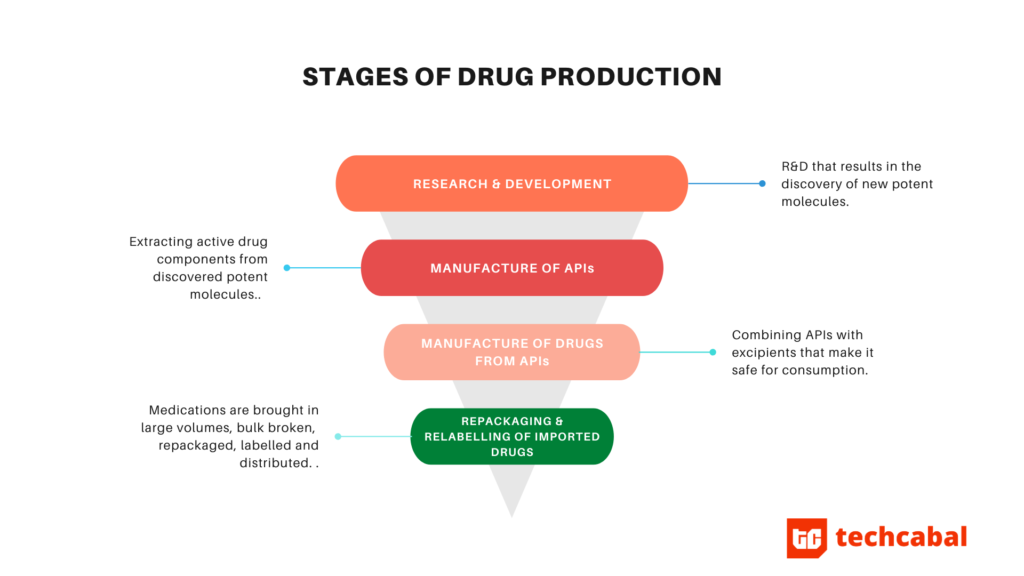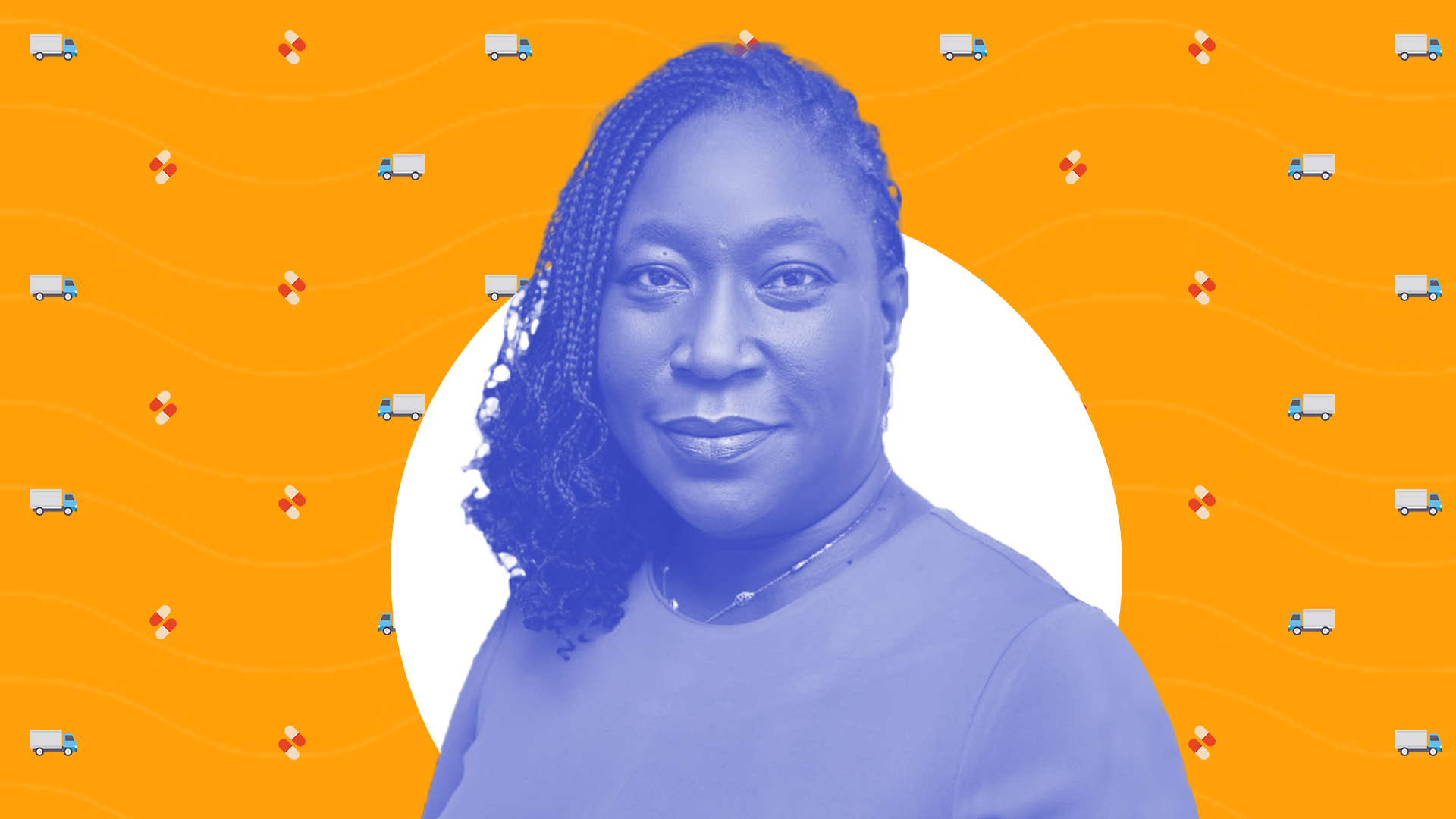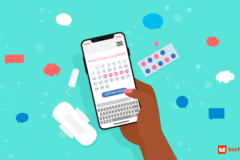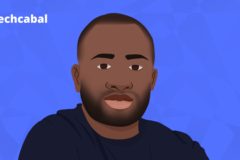My Life In Tech is putting human faces to some of the innovative startups, investments and policy formations driving the technology sector across Africa.
Since 2017 when Advantage Health Africa launched its first venture, the organisation has positioned itself to be able to solve the healthcare needs up until the last mile through a number of tech-enabled solutions. For MLIT this week, CEO, Abimbola Adebakin walks us through the journey since 2017, team building, drug manufacture in Nigeria and the efficacy of traditional herbal medicine in curing COVID-19.
When Abimbola Adebakin, Chief Executive Officer, Advantage Health Africa, launched my-medicines.com, an e-commerce platform for drugs and healthcare items, in 2017, uptake was a lot slower than expected. It was not entirely surprising to her. As a student of business, she had expected a curve: there would be early adopters of the new technology who will, in turn, spread the news and drive market adoption.
Three years later and with a second venture, myPharmacy, launched in February this year, Adebakin’s Advantage Health Africa is assembling an array of tech-enabled ventures that will ensure accessible and affordable healthcare reaches last-mile users in the best quality.
Adebakin was born in Lagos and holds a degree in Pharmacy as well as a Master’s in Business administration from the University of Lagos.
“With pharmacy, there’s some level of automation and technology but it wasn’t at the height we know now,” she says.
“But as a scientist, you are interested in anything that makes things work better, faster. You are interested in precision, in safety. I’ve always had the interest in things that will enable me to do what I ought to do.”
This desire spurred the move from Pharmacy to Accenture where she did quite a lot of consulting in the financial services and resources sector.
“I was in the team that worked side by side with those that set up Interswitch. I’d also worked on an ATM consortium where I learned all you needed to know about automated teller machines. I had to embrace the tech and the operations of the machines and also the business angle of using ATMs.”
Working across various roles during this period as a result of a lean team may have been a burden for some but proved to be insightful to Adebakin for understanding how technology adoption worked beyond just the tech tools.
My-medicines.com and myPharmacy ventures
When Adebakin set out to develop my-medicines.com, she had scale in mind, and access across the country. The platform aggregates medicines and medical items, over 7,000 of them, from more than 900 vetted pharmacies across the country. Not only does the platform help solve access and ease of purchase for users, it is also ensuring the safety of drugs purchased as counterfeiting is still a huge challenge in the country’s pharmaceutical space.
“For me, the cesspool we are in regarding counterfeiting is because we have enabled irregular informal penetration of the drug supply chain by people who have no business with medicines and we’ve also enabled those who have a business with medicines to be impoverished,” Adebakin explains.
“It is a double-edged sword that we are addressing.”
My-medicines.com plays as a B2B2C business stradling pharmacies across the country as well as end users.
“It is a tough industry. If we had met an industry that had been aggregated along business lines already we would have just done a plug and play but we are having to cultivate the aggregation by ourselves then having to deploy and interface with consumers at the last mile,” she says.
Challenges and sector growth since 2017
In its three years of operation, Adebakin says user behaviours are changing and adoption is becoming faster, the pandemic and lockdowns across the country being one huge catalyst in the last few months.
Disporan Nigerians have also shown great affinity and amazement with my-medicines.com
“People in diaspora have taken to us like ducks to water. Because this is the kind of thing they desire to see in Nigeria,” says Adebakin.
“Maybe they’ve been away for a while and they tend to think such development isn’t here. So their expectations are lower than those of us here.”
As with many e-commerce companies in Nigeria, logistics has been one of the major issues to grapple with for my-medicines.com
With a pan-Nigerian play, Adebakin says it was difficult to find a service provider who covered Nigeria extensively.
Many, due to the scale of their operations, are often limited to intra-city logistics or serving solely dedicated areas within a city. While they had early on decided to not take on the logistics component of the business, Adebakin says they may be rethinking that strategy.
Currently however, a partnership with the Nigerian Postal Service (NIPOST) which is the only entity that extensively covers the country with its 5,000-man workforce and its 1,000 offices spread across the country, has enabled my-medicines.com deliver drugs and pharmaceuticals to customers across the country.
“We were the first to sort of pull NIPOST out of their comfort zone and to explain what we are about and the social impact of what we were doing. We were quite happy when we were able to strike a deal with them,” Adebakin says.
Typically, users tend to drop off their items at NIPOST dedicated offices which they then deliver to their final locations.
But for my-medicines.com, through its EMS courier app, drugs are picked up directly from pharmacies and delivered where they need to go.
“It’s been a good ride. They are credible partners. They are not always available say on public holidays and we have to look for alternatives. But we are thinking about a concept that we think will accelerate that pickup and delivery from genuine sources.”
Where do all our drugs come from?
About 70% of drug consumption in Nigeria is imported. 30% is produced locally and production is very negligible.
According to Adebakin, drug production could be said to occur in four stages and Nigeria’s level of production is at the bottom of this chain.

“The highest stage is where we are researching and coming up with new molecules ourselves. For example, we’re discovering some nano microorganisms that could, say, cure skin eczema or something,” explains Adebakin.
“We haven’t done a lot in that regard.”
The second stage is where identified pure molecules called API (Active Pharmaceutical Ingredients) are manufactured. APIs are the biologically active component of a drug product. At the moment, Nigeria isn’t manufacturing APIs.
A drug formulation usually comprises an API and other substances called excipients that make the drugs safe for consumption. On level three of production, the APIs are used in the manufacture of drugs (tablets, syrups, emulsions and so on). This is where the 30% local production occurs.
“So we are still importing a large volume of prepared medication,” says Adebakin.
At level four, imported medications are broken down into smaller volumes, something called breaking bulk, repackaged and relabelled.
“We do quite a lot of that as well in Nigeria,” she adds.
Ultimately, countries should gun for self-sufficiency and Nigeria is far off that path. Nonetheless, at the industry level, and National Agency for Food and Drug Administration and Control (NAFDAC) level, there are efforts to build capacity and encourage API production. Associations like the Pharmaceutical Council of Nigeria (PCN) are also encouraging pharmacists to go into drug production so it is not entirely all doom and gloom.
“We [Advantage Health Africa] produce sanitisers. We’ve found it lucrative and enjoyable,” Adebakin says.
“I would love to see a strategic business unit within Advantage Health Africa that looks into compounding on a large scale and doing much more in preparations that are needed in Nigeria in small or large volumes.”
As the pandemic persists, many countries are becoming more aware of how ineffective its healthcare systems truly are. The United States has come to note that most of its drugs, like Nigeria, are heavily reliant on imports from China.
For Nigeria, as countries go into the labs researching and developing vaccines and drugs to counter the coronavirus, we can only trial already-manufactured vaccines and medicines from across the globe.
Considering that on a regular day, most of the imported drugs are not clinically tested locally before they are administered, any adverse effects that they may have on Nigerians as a result of genetic and other biological differences are left to chance.
Adebakin stresses that drugs must be tested for efficacy and safety and must meet both standards before they are administered.
One area of contention that has come up in the last few months in this regard are claims that traditional medicine might be Africa’s chance at fighting the COVID-19 virus.
“I have no problem with Africans developing medicines nor do I have a problem with herbal medicines per se, but I have been trained with the western style of education and that style of education which has produced us the healthcare system that we adopt across the world requires that you prove the efficacy and the safety of any medication,” she stresses.
“If you say something is efficacious in treating, let’s say a tumor, but in administering it, it is killing the eyes, killing the kidneys, killing the liver, you’re now given that power as a prescriber to say, you know, I’d rather cure this person of a tumor and let them lose their eyes, kidney and so on because it is worth it.”
That ability to decide must come from knowledge and information and there is not a lot of substantial, quantitative information on the effects of the myriad of traditional herbal concoctions present in the country.
“It is a careless healthcare provider that will say, go ahead and bring it [drug] from Madagascar,” she says, a reference to news that broke last month about the federal government’s receipt of a herbal COVID-19 cure said to have originated in Madagascar.
“We cannot play with people’s lives.”
myPharmacy
myPharmacy launched in February this year to enable brick and mortar pharmacies leverage technology to better carry out their operations. The platform launched with 51 pharmacies but there are currently 37 active pharmacies on the platform including 4 which advantage Health Africa owns. They are spread across 7 states and the Federal Capital Territory. present in 7 states plus the FCT.
“Apart from you being licensed, you must be tired of doing business the way you’ve been doing it,” says Adebakin on the selection criteria for onboarding pharmacies to the platform.
“Because we’re going to take the pharmacy through the mill, it’s not an easy journey; we are going to change the way they do procurement, the way they handle inventory then financial management and accountability, we are changing their perspective on people. Some have been lackadaisical about people development, we’re changing that, their perspective on compensation, sales optimization and after sales. If we look at all the things we are trying to put them through, you must be interested in this thing.”
In addition to these, pharmacies onboarded to the platform can also leverage the my-medicines.com platform to reach more than walk-in customers.
By year end, Adebakin hopes to have doubled the number of pharmacies on the platform.
Building her dream team
“We started a bi-monthly meeting just to touch base and they roll their eyes when I start again on the vision/mission thing,” says Adebakin about her 54-member team.
But consistently sharing this with them is critical to her “because really if you work, work, work, you are more transactional day by day. You must know that you must balance transactional with transformational interaction”.
As someone who believes entrepreneurs and innovators coming into the space understand the long-term play, it is important to not lose sight of what the dream is.
“I value my team and I don’t say that lightly. I will actually fight anybody for my team.”
There’s also room for failure at Advantage Health Africa.
“I prefer people venture to make things happen than to not do it because they are afraid to make mistakes.
“I read this somewhere and I’ve held on to it in my life journey: if you want to build an innovative environment, you must create safety for error” as long as precision is not a matter of critical import to your business.





















